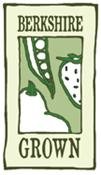
Throughout the year our café features seasonal menu items from our farm and from local food purveyors. Our Village Store stocks seasonal items, and our website lists seasonal offerings and goods for sale.
ES: The Shakers’ first purpose is for their own supply: “They raise the best they can, and they eat the best they raise.”*
The Shaker economy was based on agriculture, so cooks in Shaker villages usually had a wide variety of foodstuffs to work with. Typical Shaker diet at HSV closely resembled the diet of ordinary rural New England households of the time period - an unpretentious, simple and wholesome vernacular style of cooking largely determined by the seasonal availability of foodstuffs, the technologies available for preserving and cooking, and cultural norms of taste. In addition to seasonal ingredients (vegetable, fruits, berries, and field crops), when available, meals largely consisted of dried, smoked, canned, salted, and pickled foods; and dairy products of all kinds. Some foods were imported, such as selected grains, and fish included seafood, but the majority of the daily fare was produced within the community. Typically, meats were included in the diet. Special diets were followed by certain communities and families from time to time, such as Grahamism and vegetarianism.
Shaker diet enjoyed a number of advantages over the diet of their middle to lower class neighbors due to the uniqueness of the Shaker lifestyle, which emphasized communal food production methods, quality, and striving for perfection in all they did. On the whole, Shaker diet was well balanced by the standards of the day, as well as modern standards, and Shaker kitchens utilized tools, utensils, and technologies usually more advanced than those of their Worldly neighbors.
*Taken from a report on HSV agriculture by Henry Coleman, in The Farmers’ Cabinet; Devoted to Agriculture, Horticulture, and Rural Economy, Vol. III, 1839, published by Prouty, Libby & Prouty, Philadelphia.
LF: Where do you see HSV one year from now? In five years? Fifty years?
ES: HSV will celebrate its 50th Anniversary as an outdoor living history museum next year. We will be working with our cultural colleagues to celebrate this important milestone. HSV’s creation was at the forefront of the historic preservation and land conservation movement. We will highlight our leadership and our role now. In fifty years, we will continue to be a place where people can explore principled living and can take lessons from the Shaker way and apply them to contemporary life. The Shaker perspective – emphasizing community, simplicity, celebration of a thing well made, respect for the land, and sustainability are enduring values that will be as relevant fifty years from now as they are today. We hope everyone who visits will learn one thing they can do to change the way they live. This will change their families, their neighborhoods, their towns, their states, their regions, the country and eventually the world. We look forward to celebrating fifty years of service to the public by demonstrating the enduring culture of the Shakers and helping visitors understand and value the influence Shaker culture and design still has on the world today.





No comments:
Post a Comment